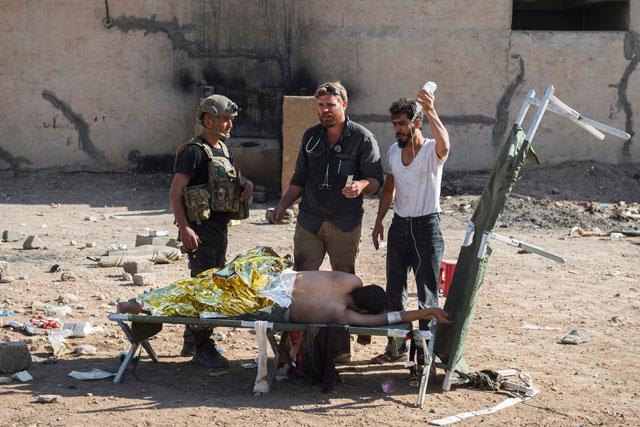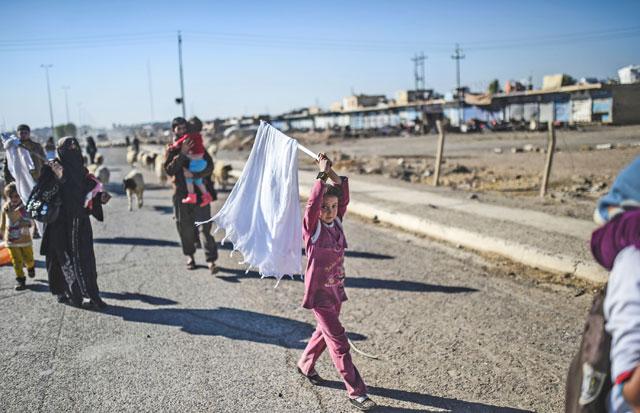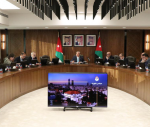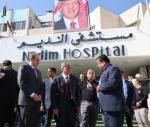You are here
Attacks near Daesh-held Mosul in Iraq kill at least 30
By AFP - Dec 22,2016 - Last updated at Dec 22,2016
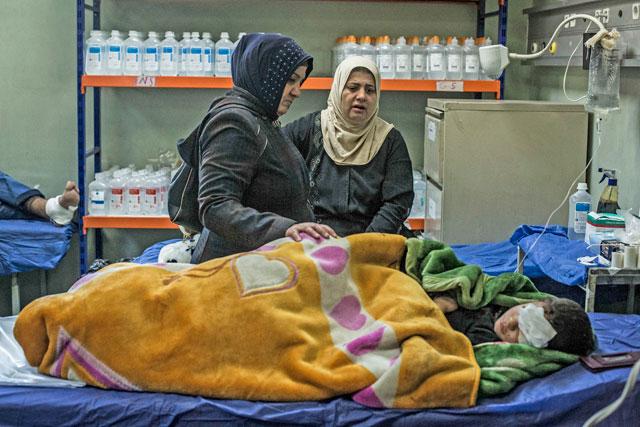
The mother and aunt of a boy wounded in a car bomb attack in the district of Gogjali in Mosul comforts him in a hospital in Erbil, Iraq, Thursday (AP photo)
BAGHDAD — Mortar fire and car bombs killed more than 30 people including aid workers near Mosul Thursday as Iraqi forces battled to seize the city from the Daesh terror group.
A triple car bombing on a market killed at least 23 people in Gogjali, a few kilometres east of Mosul, the army said.
Gogjali was retaken by pro-government forces on November 1, two weeks into a massive operation to oust Daesh extremists from their last stronghold in Iraq.
Since launching the operation against Daesh on October 17, Iraq's elite counterterrorism service has advanced into Mosul from the east, but progress has since slowed.
"A terrorist attack in the form of three car bombs at a market in Gogjali killed 15 civilians and eight police," a coordination centre for the forces battling Daesh said in a statement.
Daesh said three of its suicide bombers carried out the attack.
Mortar fire also killed 11 people including four aid workers as civilians gathered to receive assistance in Mosul city, the United Nations said.
"According to initial reports, four aid workers and at least seven civilians queueing for emergency assistance in eastern Mosul city have been killed by indiscriminate mortar fire," UN humanitarian coordinator in Iraq Lise Grand said in a statement.
"Within the last 48 hours, there have been two separate incidents" that also wounded up to 40 people, she said.
"People waiting for aid are already vulnerable and need help. They should be protected, not attacked," Grande said.
"The killing of civilians and aid workers violates every humanitarian principle."
Iraqi forces pushing towards Mosul on the southern front have yet to enter the city, and another advance from the north has stalled.
To the west, forces from pro-government paramilitary groups are close to the town of Tal Afar, between Mosul and the border with Syria.
However, areas taken from the fighters are still exposed to deadly artillery attacks, bombs and gunfire.
‘Torn to shreds’
Monday’s attacks in Gogjali and Mosul came a day after Human Rights Watch said Daesh was “indiscriminately” attacking civilians who refused to retreat along with the fighters in Mosul.
“Residents said (Daesh) members told them in person, by radio, and over mosque loudspeakers that those who stayed behind were ‘unbelievers’ and therefore valid targets along with the Iraqi and coalition forces,” the rights group said.
The extremists have targeted civilians with mortars, explosives and gunfire, HRW said.
Amnesty International said Thursday that children are being killed and wounded as well as witnessing horrific violence during fighting for the city.
“Children caught in the crossfire of the brutal battle for Mosul have seen things that no one, of any age, should ever see,” the rights group’s Donatella Rovera said.
“I met children who have not only sustained horrific wounds but have also seen their relatives and neighbours decapitated in mortar strikes, torn to shreds by car bombs or mine explosions, or crushed under the rubble of their homes,” she said.
Some 100,000 people have fled since the Iraqi operation against Daesh began, and aid organisations have said they fear it could result in the displacement of more than a million people.
The government has encouraged civilians in Mosul — where a million or more people may still live — to stay in their homes if possible.
That could help prevent a potentially catastrophic wave of displacement.
But it also hampers Iraqi forces’ progress and exposes civilians to significantly more danger than they would face in camps.
Daesh overran large areas north and west of Baghdad beginning in June 2014.
Iraqi forces supported by a US-led coalition and Iran-backed militias have since regained much of the territory the extremists took.
But the war has taken a significant toll, and commanders have said extremists have offered stiffer resistance than expected, prompting fears that the operation could drag on.
Related Articles
EAST OF MOSUL, Iraq — Advancing Iraq troops broke through Daesh defence lines in an eastern suburb of Mosul on Monday, taking the battle for
MOSUL — Layers of hastily erected barricades built from rubble and twisted metal trace Mosul's eastern frontline where Iraqi forces and Daes
GOGJALI, Iraq — The reclusive leader of the Daesh terror group broke a nearly year-long silence as Iraqi forces closed in on Mosul Thursday,


